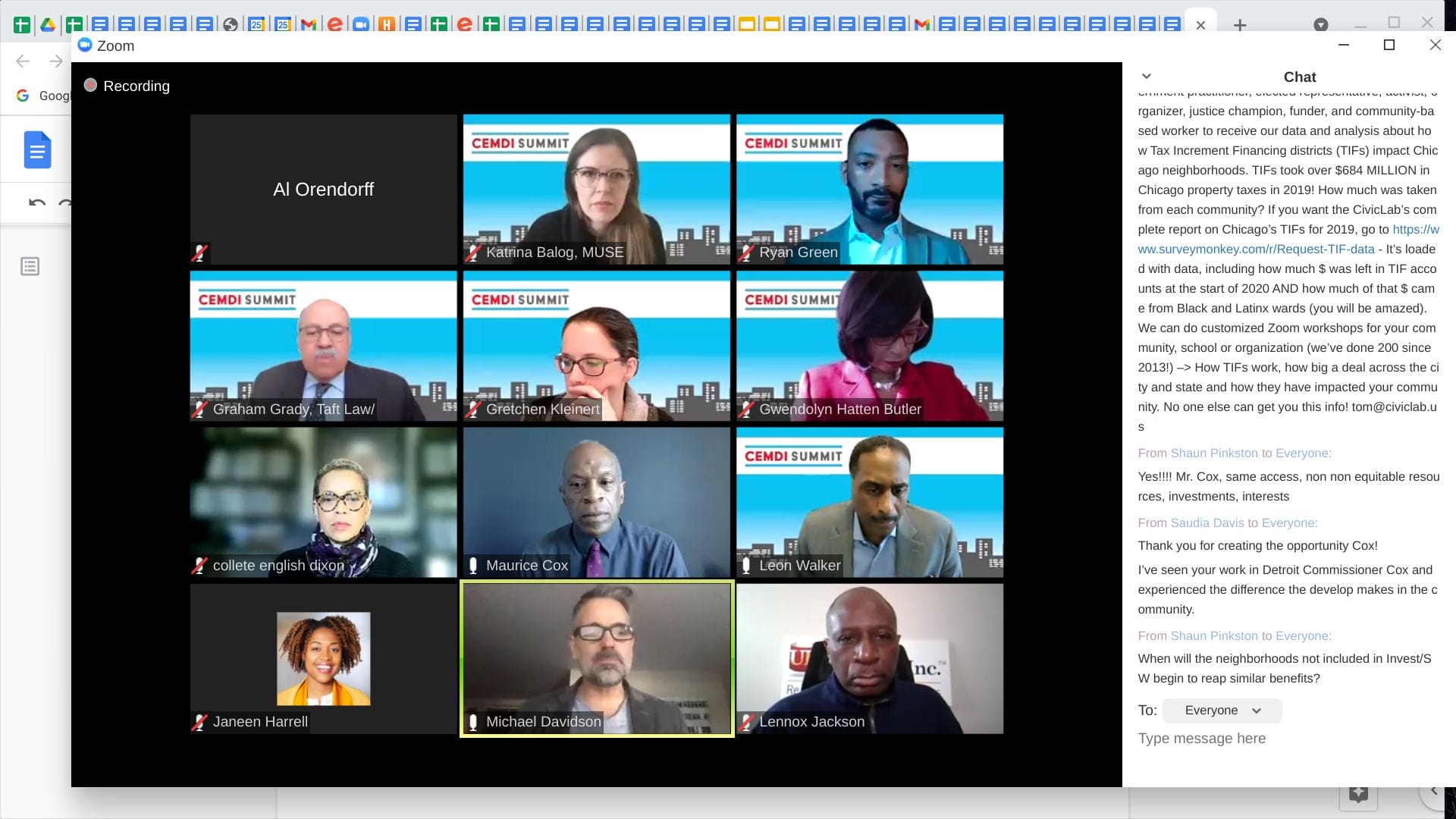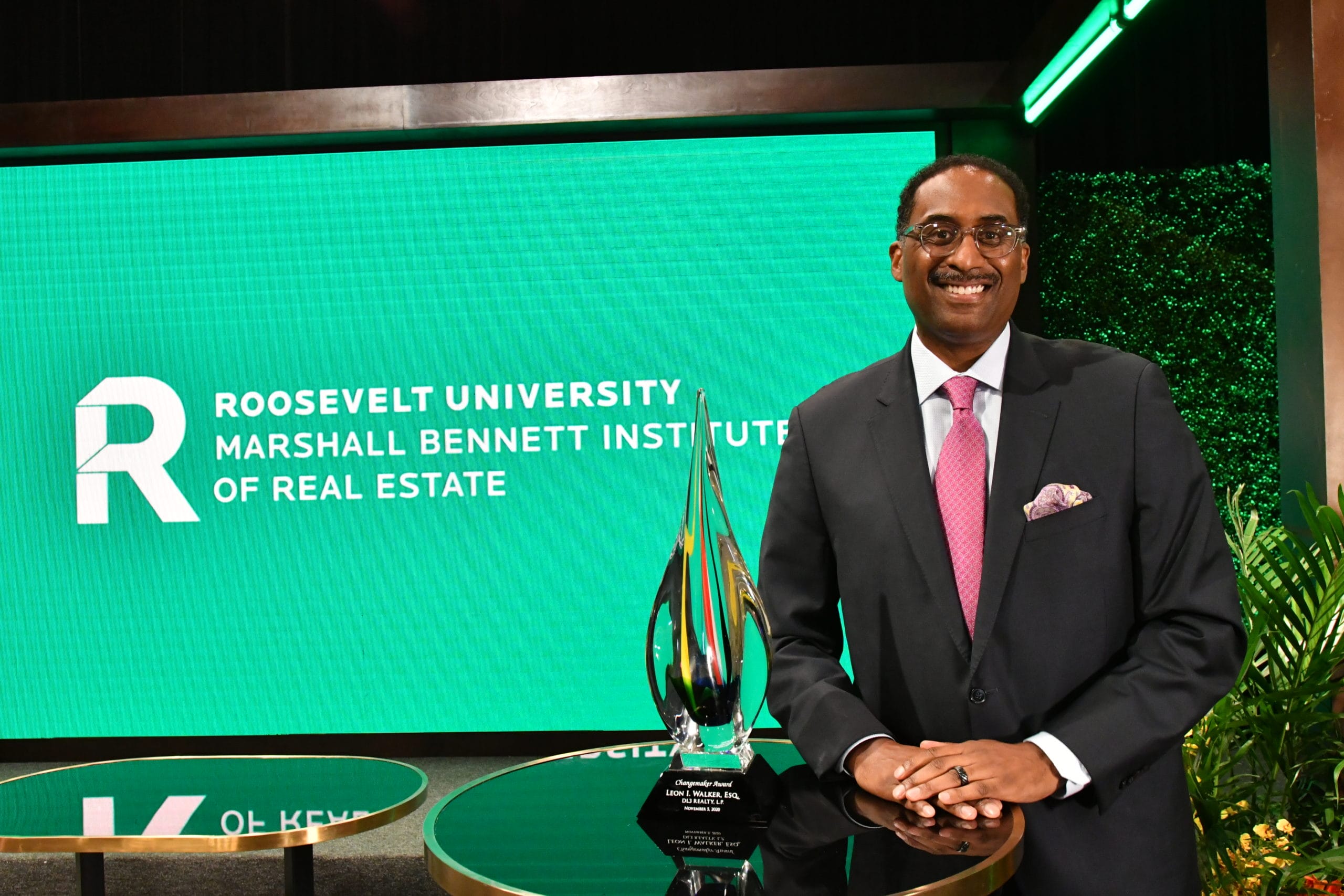Most industries have made progress in their efforts to improve diversity and inclusion in their ranks. Chicago’s developer industry isn’t one of them.
A group of established Chicago real estate professionals recently launched the Chicago Emerging Minority Developer Initiative (CEMDI) to develop strategies to source, build and equip a pipeline of community-focused developers from African-American, Latinx, and other minority communities to successfully complete commercial real estate development projects city-wide, including projects prioritized as part of the city of Chicago’s INVEST South/West initiative. The exploratory phase of this initiative was funded by the Chicago Community Trust with Chicago TREND as fiscal agent to uncover opportunities and barriers for minority developers.
On Thursday morning, February 25, more than 150 Chicago area developers and industry experts met virtually at a special CEMDI summit to discuss the problem at length and learn how the Chicago Emerging Minority Developer Initiative is working to advance equitable development.
“Minority developers face a number of challenges to participating in large-scale commercial real estate development,” said Leon Walker, managing partner of DL3 Realty. “Structural racism and disinvestment in minority communities are largely to blame, as well as poor access to and high cost of debt capital, weak ties to sources of equity funding and limited experience on large-scale commercial real estate projects.”
Few, if any, minorities participated in the development of the roughly $100 million of construction activity and related professional services activated in 2019. Also, none of the mega-projects being developed in Chicago the year before the pandemic shutdown had minority leadership or even minority joint-venture participation at the developer/- owner level. This disparity highlights a significant absence of inclusion and equity in the commercial development industry.
Walker said that as they studied the issue, the CEMDI group became aware of a number of industry trends and peculiarities that both contribute to the problem and could be part of the solution, including,
- There is no formal list of active Chicago developers.
- There is an ecosystem of capable minority professionals eager to advise and support emerging developers with experienced majority developers ready to consider joint ventures
- There is a strong business case for investing in neighborhoods
- Despite many existing resources there remains a specific need to connect existing developers to the right networks, partners and financial resources
- There is a need to prioritize connecting emerging developers to project opportunities that build capacity and allow them to scale their business over time.
Chicago Department of Planning and Development Commissioner Maurice Cox said that after touring all 50 of the city’s wards he was “…taken aback by the disparity in economic development opportunities from the north to the south side. I saw robust private sector development anchoring the north side. I saw the exact same assets on the south side but very little private sector activity.”
Rob Rose, executive director of the Cook County Land Bank authority said, “What developers really lack is the opportunity. Real estate is an inside game. You can’t apply for the RFP if you don’t know about the RFP.”
The group announced six strategies aimed at addressing diversity and inclusion in the city’s developer industry. The industry needs to connect emerging developers to:
- Joint venture partners to provide access to development opportunities and mentorship
- Professional service firms to build their development teams and back-office infrastructure
- Deals citywide to provide a range of development opportunities and experience
- Equity and debt capital to finance projects
- Financial resources for formal educational and other professional development programs
Existing programs/initiatives, industry partners, and institutions
Others included in Thursday morning’s panel discussions included, Michael Davidson, Senior Director of Community Impact, The Chicago Community Trust, Collete English Dixon, Executive Director, Marshall Bennett Institute of Real Estate, Roosevelt University, Calvin Holmes, President, Chicago Community Loan Fund, Mike Drew, Founding Principal, Structured Development, Charlton Hamer, Senior Vice President, Habitat Affordable Group, Denise Lewis, Retired Senior Partner, Urban Redevelopment Practice Group, Honigman LLC, and Sarah Wick, Vice President, Affordable Housing, Related Midwest
The panels were moderated by Leon Walker, Managing Partner of DL3 Realty and Gwendolyn Hatten Butler, President and Chief Investment Officer of the Capri Investment Group.
Graham Grady, partner in the law firm Taft, Stettinus and Hollister, LLC, who, along with Gwendolyn Haten Butler and Leon Walker is a driving force behind CEMDI, said, “This summit was another important step forward in our efforts to marshal the resources needed to address this lingering problem in Chicago’s developer industry.”
DL3 Realty is a locally engaged and nationally recognized full-service real estate development and investment advisory firm that is dedicated to transforming communities through high-impact commercial real estate projects. From medical centers to grocery stores, DL3’s connection to community creates a pipeline of development opportunities that improve the quality of life for everyday Chica- goans. DL3 continues to expand through new developments and acquisitions of commercial sites, including an active pipeline of commercial projects designed to create 10,000 new jobs in Chicago’s urban communities. To learn more about Walker’s Venture Development model, visit www.dl3realty.com/venturedevelopment.







